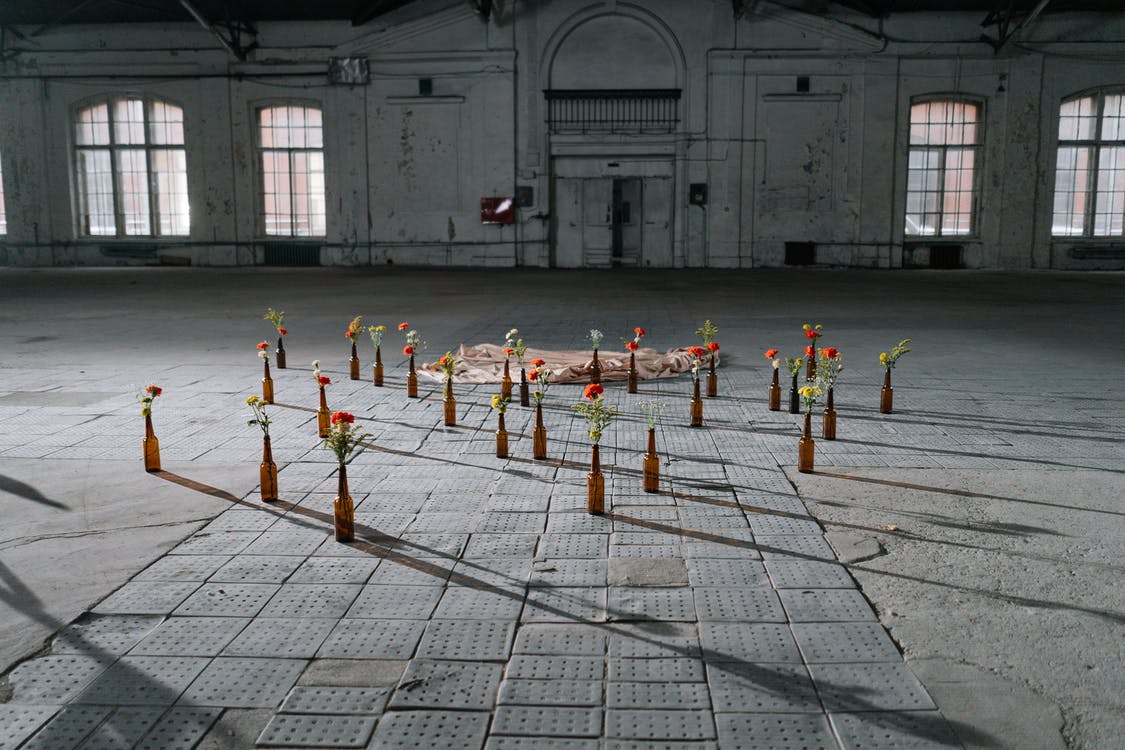4 Poets Using their Voices for Social Justice
Social justice hardly manifests in just one way or with just one, single feeling. However, traces of it may be present in unexpected places, like poetry—somewhere that social justice finds a voice (or rather, its many voices). Read Poetry spoke with four poets about how they feel social justice is embodied in their work and what motivates them to use their voices in this way. When asked what words surfaced upon hearing the term social justice, they responded: community, action, love, grief, consistency, perseverance, education, hope, terror, and uplift, among others.
Andrea Gibson
How is social justice present in your work?
My voice was raised by a group of activists a generation older than myself who saw art as fuel for uprising. Through them, I was gifted an intimate, decade-long education on how to make art that inspires direct community action. My hope, when writing a poem, is for the last line to begin something elsewhere.
What motivates you, as a poet, to use your voice in this way?
Carolyn Forché speaks about being a “citizen of the world.” To continuously touch into being part of the organism of humanity is to be constantly motivated towards collective wellness. For me—there need not be any other motivation besides the motivation that is instinctual when I recognize I am not separate from others. Speaking is a survival instinct. Making art is a survival instinct. That I enjoy it, that I’m thrilled and awakened by it, is an added blessing.
Arhm Choi Wild
How is social justice present in your work?
I write upon the erasure of queer and transgender people of color, to map a variety of narratives to trouble the single story about the Asian and queer experience. I want to build a world in my poems where people don’t have to choose one identity over another in order to belong, a world where we get to be our full selves despite the bargains we have made before to be loved, or employed, or safe.
My poem, “At What Cost,” speaks to the constant negotiation of belonging, and the non-linear journey of self-acceptance that allows us to claim space exactly as we are. Social justice also shows up in my book, “Cut to Bloom,” in the ways it hopes to interrupt the patterns of socialized silence, so we don’t continue the cycles of forgetting and erasure that comfort only those who seek to silence us.
What motivates you, as a poet, to use your voice in this way?
Often, those who are socialized as women are told to prioritize other people’s comfort over their own, to keep the peace. This expectation leads to experiences of assault, in all its many forms, to be swallowed and internalized. Speaking up about violence is a step towards crafting a different set of possibilities, to interrupt the cycle that keeps us running in place, often alone, often blamed, and often without resources. Stories are some of the best ways to build empathy and community, two critical components in pushing forward our lifelong work of equity.
Megan Falley
How is social justice present in your work?
I most often write about my personal life, and some of those intersections make my work inherently political and raise awareness towards issues just by the nature of my existing, i.e. being queer, being a woman, sometimes being in a larger body, being a feminist, being Jewish, dealing with suicidality, etc. But also I write about issues outside of my personal life as well—gun violence, primarily, as it haunts me…
What motivates you, as a poet, to use your voice in this way?
It honestly feels like the very least I can do. I think we are all living political existences, and to use your voice as a writer is to control the narrative, offer representation, and provide an opportunity for others to experience empathy—all of which I think can move the needle towards more justice and compassion in others.
Siaara Freeman
How is social justice present in your work?
The theme of social justice is inherent in my work. As a Black, queer, autoimmune disorder-carrying, urban woman, there are plenty of societal based isims that I am forced to examine and confront in my life, and my life is a reflection of my work. I try and think of Toni Morrison, my personal literary hero, and consider where my gaze is at. Who am I talking to? When and why?
The older I get, the less my writing is directed at the oppressors and what they should do/feel and more on focusing on my community and offering them my solutions, hope, love, and hopefully inspiration for more action, faith, and perseverance.
What motivates you, as a poet, to use your voice in this way?
I choose for my art to be a reflection of me—my thoughts, desires, grief, anger, joy, and history. For me, there is no other motivation other than necessity. I think both art and social justice work are necessities, and I truly believe a huge part of having a better world is imagining what it could be—speaking it, writing it, drawing it, singing, dancing, sculpting, etc. into a reality.




